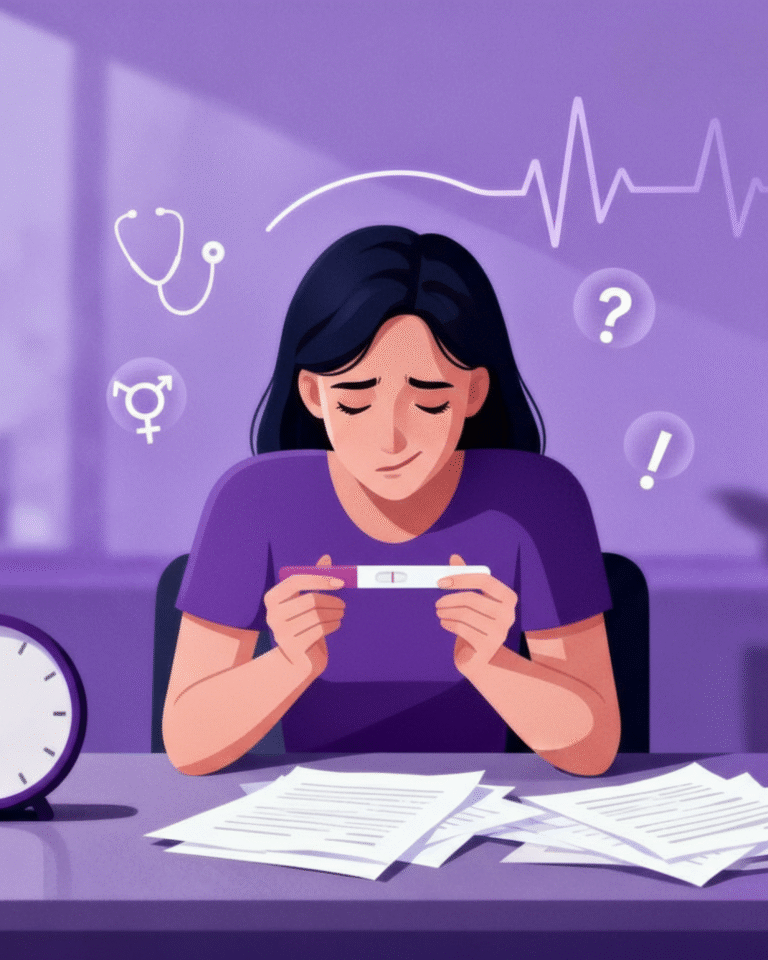Why You Might Feel Pregnant Despite a Negative Test ?

It can be confusing when your body shows classic Pregnancy signs—tender breasts, nausea, fatigue, and a missed period—but every home test stays negative. Here are the medical reasons behind this, explained in simple terms, and what you can do next..
1. Testing Too Early
Pregnancy tests look for hCG, the hormone your body makes after an embryo attaches to your uterus. It takes time for hCG to build up. Testing too soon—before or right after your missed period—can mean hCG is still below the test’s detection limit.
Tip: Wait 5–7 days after your missed period and use first-morning urine for best accuracy.
2. Diluted Urine Sample
Drinking a lot of water before you test can dilute the hCG in your urine, leading to a false negative.
Tip: Use the very first urine of the day when hormone levels are highest.
3. Low hCG Production or Delayed Implantation
Some women naturally produce less hCG, or the embryo may attach a bit later than average. Both delay when hCG becomes detectable.
Tip: Repeat the test after 48–72 hours, or ask your provider for a blood test that measures exact hCG levels.
4. Ectopic Pregnancy
If the embryo implants outside the uterus—most often in a fallopian tube—hCG levels rise slowly and unevenly. Warning signs include one-sided belly pain, light bleeding, or dizziness.
Tip: Seek immediate care for an ultrasound and blood work to rule out or treat an ectopic pregnancy
5. Cryptic Pregnancy
In rare situations, hormone levels stay so low that both home tests and even healthcare providers may not detect pregnancy for weeks. You may still have symptoms like nausea or missed periods.
Tip: If symptoms persist, ask for a pelvic ultrasound to check for pregnancy directly.
6. Polycystic Ovary Syndrome (PCOS)
PCOS can cause irregular periods, bloating, weight changes, and mood swings—symptoms that often mimic early pregnancy.
Tip: Discuss an ovarian ultrasound and blood tests (like LH, FSH, and androgens) with your doctor.
7. Thyroid Dysfunction and High Stress
An underactive or overactive thyroid can trigger fatigue, weight shifts, and menstrual irregularities similar to pregnancy. High stress levels also disrupt your cycle and cause nausea or breast tenderness.
Tip: Ask for thyroid function tests (TSH, T3, T4) and consider stress-management techniques or counseling.
What to Do Next ?
Retest at the Right Time: Wait at least one week after a missed period and use first-morning urine.
Get a Blood Test: A quantitative hCG test in the lab can detect much lower hormone levels.
Ask for an Ultrasound: Imaging is the most direct way to confirm or rule out pregnancy.
Investigate Other Causes: Hormone panels for PCOS or thyroid function tests can identify alternative explanations.
Seek Urgent Care: If you have severe pain, heavy bleeding, or dizziness, don’t wait—get the Expert Guidance now.
Early evaluation brings clarity and peace of mind—schedule your appointment today.
